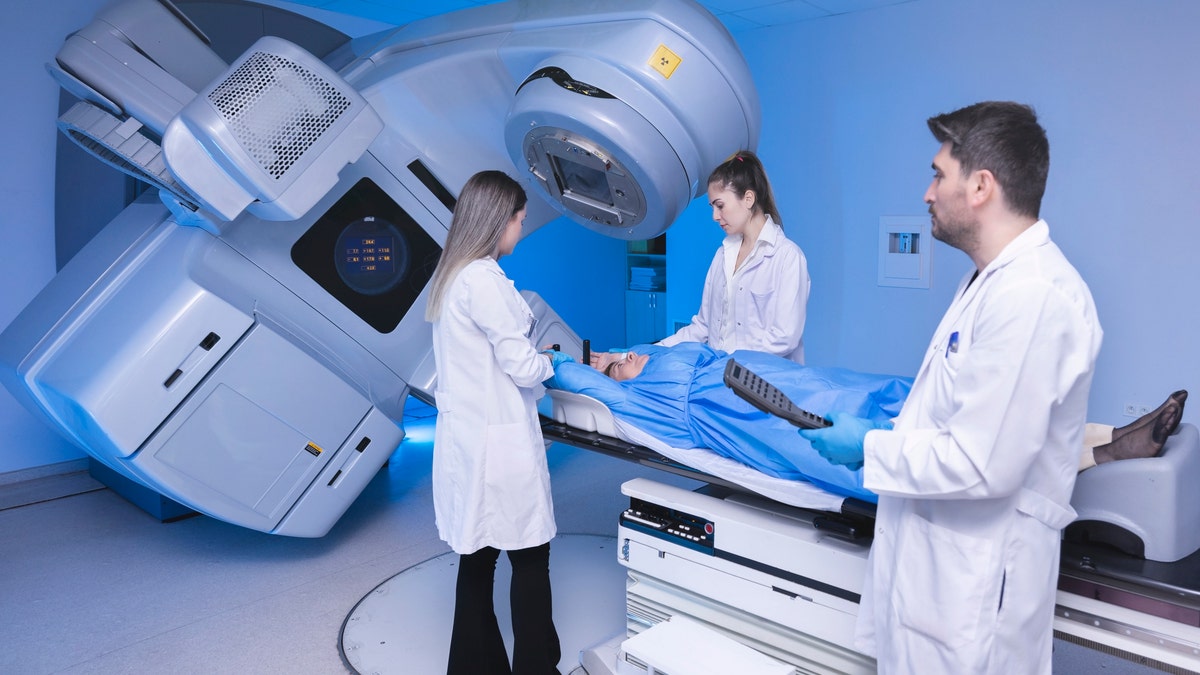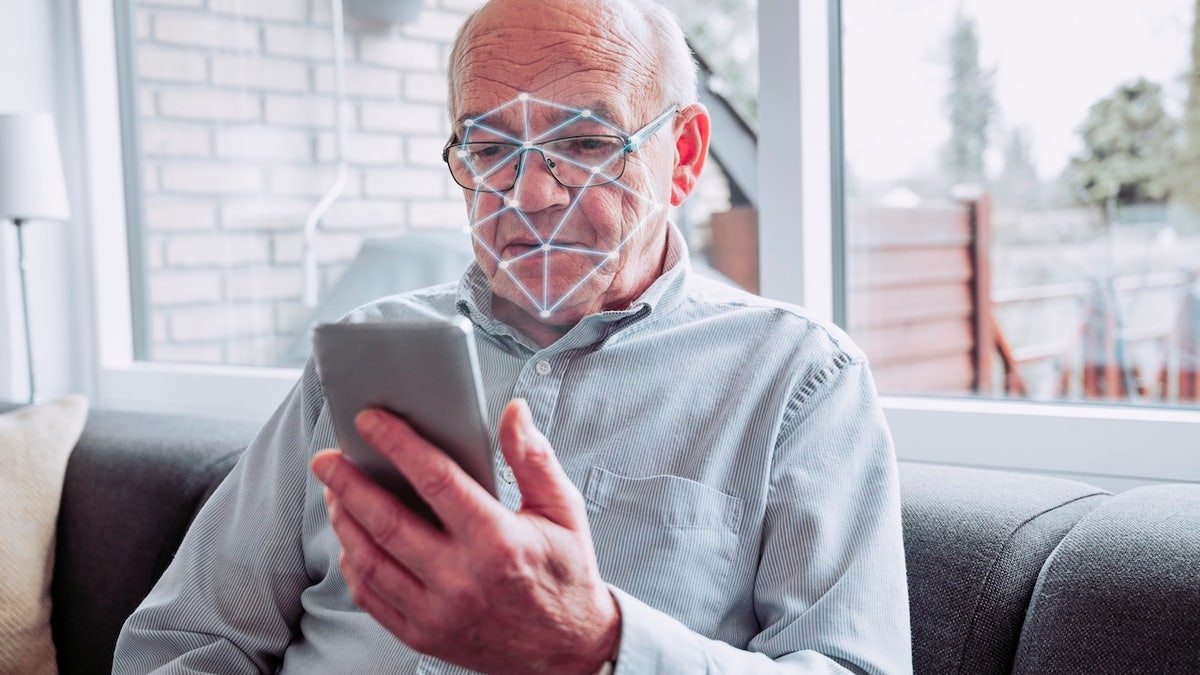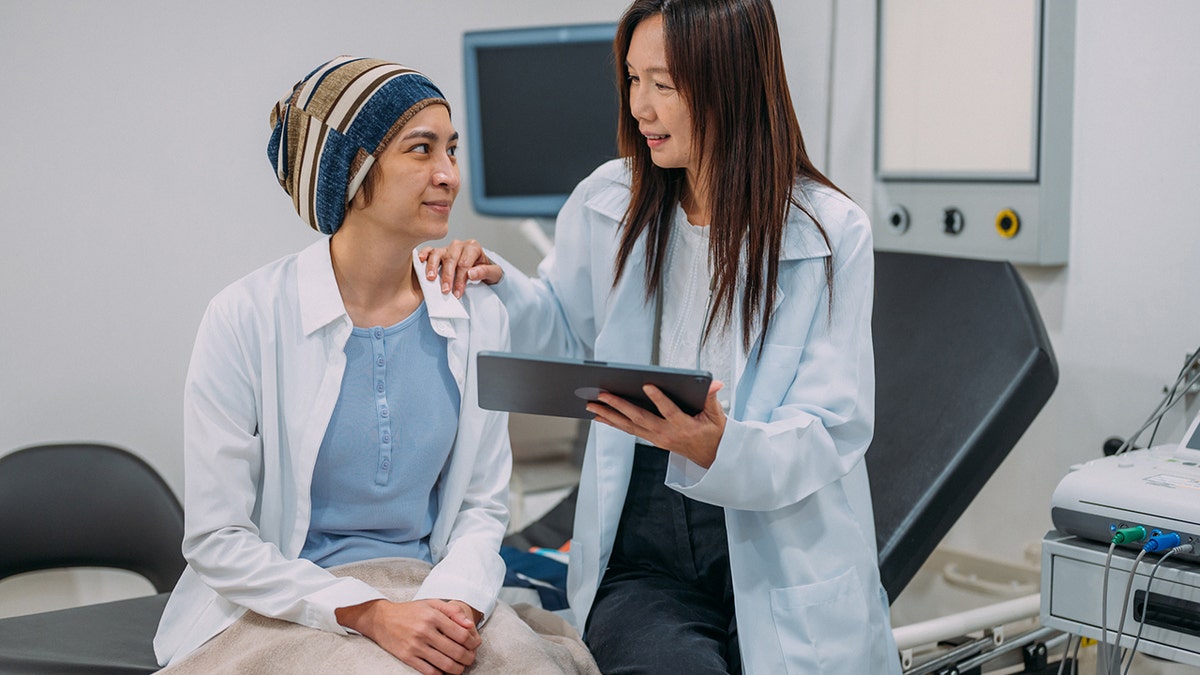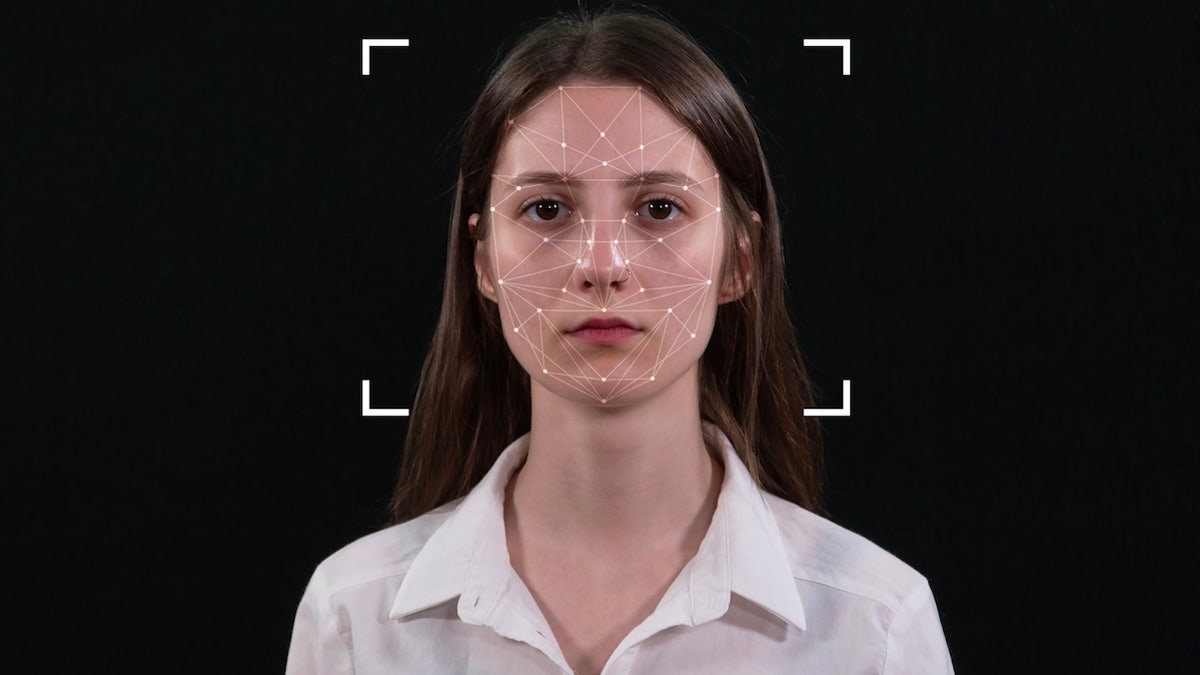A simple selfie could contain hidden tracks in the biological age, and even the time they will live.
This is according to General Mass Brigham researchers, who developed a deep learning algorithm called FaceAge.
Using a photo of someone’s face, the artificial intelligence tool generates predictions of the subject’s biological age, which is the rate to which they are in contrast to their chronological age.
Music Driver with Parkinson’s Sees Symptoms Improved with deep brain stimulation
Faceage also provides for survival results for cancer people, according to a statement from MGB.
A simple selfie could contain hidden tracks in the biological age, and even the time they will live. (Istock)
The AI tool was formed in 58,851 photos of “suspected healthy people of public data sets,” said the launch.
To test the accuracy of the tool, researchers used it to analyze photographs of 6,196 cancer patients taken before radiation therapy treatment.
Among people with cancer, the tool generated a higher biological age, which was about five years higher than its chronological age.
The man paralyzed with those is the third to receive a neural implant, can write with brain
Researchers also tested the tool’s ability to predict the life expectancy of 100 people who received palliative care based on their photos, and then compared it to 10 doctors’ predictions. It was found that the cari was more accurate than the clinics’ predictions.
The researchers’ findings were published in Lancet Digital Health.

General Mass Brigham developed a deep learning algorithm called FaceAge, which generates predictions of the subject’s biological age from a photo. (General Brigham Mass)
“We can use artificial intelligence to estimate a person’s biological age from the images on the face and our study shows that information can be clinically meaningful,” said CO-Senior and corresponding author Hugo Airos, doctor, director of the Intelligence Intelligence In Medicine (AIM) program of general Brigham, in the statement.
“This work shows that a photo like a simple selfie contains important information that could help inform the clinical and careful decision -making plans for patients and clinics,” he continued.
Woman says Chatgpt saved his life helping to detect cancer, which doctors lost
“How old is someone compared to their chronological age is important: individuals with younger faces that their chronological ages make significantly better after cancer therapy.”
The goal is for the tool to help eliminate any bias that may influence the doctor’s care decisions based on a patient’s perception of the appearance and age.
“Although the facetage may overcome doctors in some survival predictions, it should increase the human judgment, not to annul it.”
Researchers said that more research is needed before the tool for clinical use could be deployed.
Future studies will include different hospitals and cancer patients in various stages of the disease, according to the statement. Researchers will also evaluate FaceAge’s ability to predict diseases, general health status and a useful life.

To test the accuracy of the tool, researchers used it to analyze photographs of 6,196 cancer patients taken before radiation therapy treatment. (Istock)
“This opens the door to a completely new kingdom of the discovery of biomarkers from photographs, and its potential goes far beyond cancer care or age prediction,” said Co -enior Ray Mak, MD, a member of the AIM teaching staff of General Mass Brigham, in the statement.
“As we think of different chronic diseases as aging diseases, it is even more important to precisely predict an individual’s aging trajectory. I hope we can finally use this technology as an early detection system in various applications, in a strong regulatory and ethical framework, to help save lives.”
Doctor in the Ia
Harvey Castro, an emergency medicine doctor certified by the Dallas, Texas, a National Artificial Intelligence ORADOR, did not participate in the development of faceage, but shared his comments on the tool.
Do the money from full body scans are worth? Doctors share what you need to know
“As an emergency and futuristic physician of AI, I see the promise and danger of AI tools as Faeage,” Fox News Digital told Fox.
“What excites me is that Faceage structures are the clinical instinct we call the” eye balloon test “: an intestinal sense of how the disease looks. Now, automatic learning can quantify this evaluation with amazing accuracy.”

Among people with cancer, the tool generated a higher biological age, which was about five years higher than its chronological age. (Istock)
Castro anticipates that the faceage could help doctors better customize treatment plans or prioritize palliative care in oncology – “where resilience matters more than a date of birth.”
The doctor emphasized, however, that the precaution is key.
Click here to get the Fox News app
“AI models are just as good as the data they are formed,” said Castro. “If the training data has no diversity, we risk producing biased results.”
“Although the facetage may overcome doctors in some survival predictions, it should increase the human judgment, not to annul it.”
Click here to register -you are in our health newsletter
Castro also warned of possible ethical concerns.
“Who owns facial data? How is it stored? Patients understand what is being analyzed? These questions matter as much as technology itself,” he said.

“AI can improve our care, but cannot replace the empathy, context and humanity that define medicine.” (Istock)
There is also a psychological impact of the tool, said Castro.
“It is called” to look greater “that your age could influence treatment decisions or self-perception of ways that we do not yet understand completely,” he said.
“We need clear consent, data privacy and sensitivity. No one is told that they look bigger without context.”
For more health items, visit www.foxnews.com/health
The bottom line, according to Castro, is that AI can improve a doctor’s judgment, but he cannot replace him.
“AI can improve our care, but cannot replace the empathy, context and humanity that define medicine.”
#tool #explorations #confronted #predicting #biological #age #cancer #survival
Image Source : www.foxnews.com
